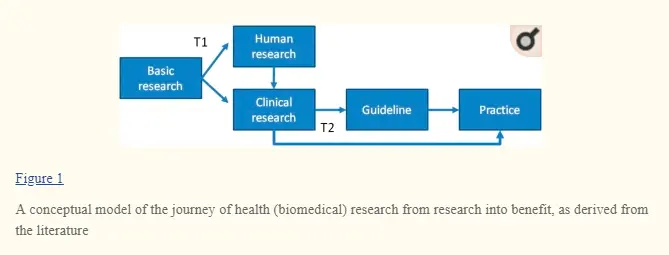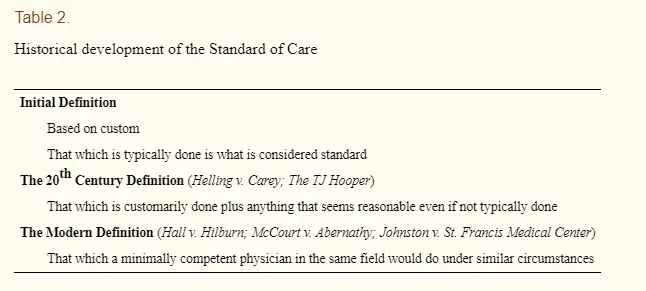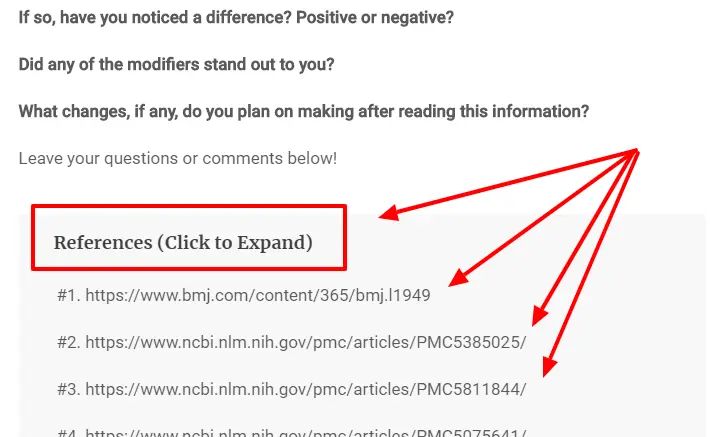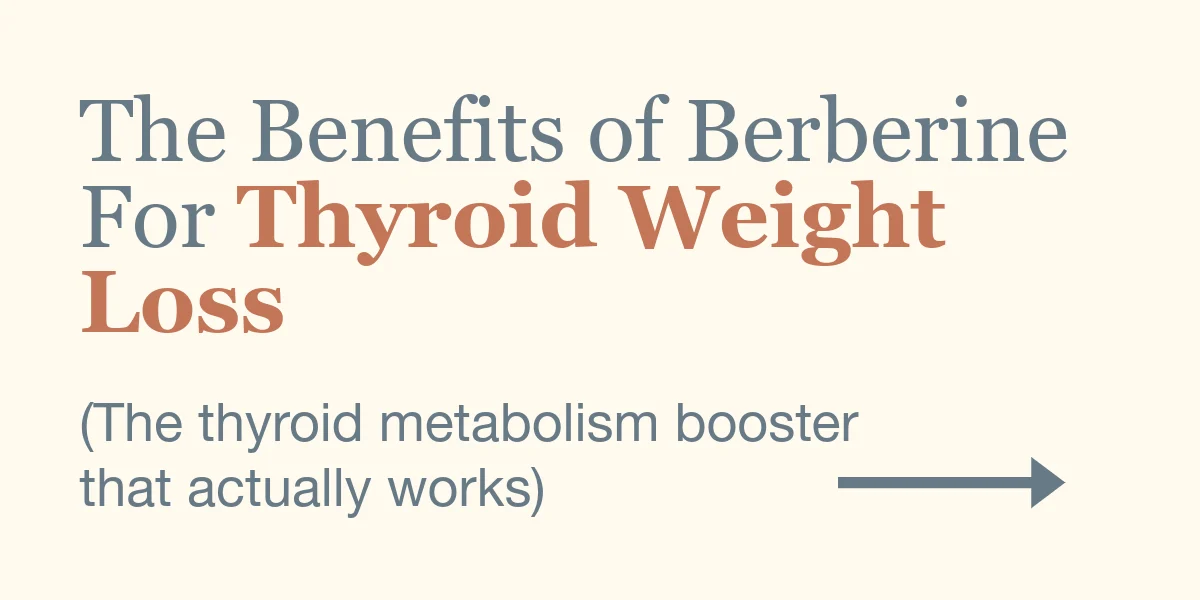As a thyroid patient, it can be extremely frustrating working with a doctor who doesn’t seem to get it.
Even if you have all of the answers or at least an idea of where to start, it means nothing if your current doctor is not willing to work with you.
Even though it can be frustrating, your current doctor may be the best chance you have of feeling better.
But how do you get them to work with you? To listen to you? To consider your treatments?
Your Doctor can be a Valuable Resource
I think one of the biggest frustrations of people who visit my site has to do with their experience once they leave.
The information here sounds intuitive to them and helps explain away some of the issues that they’ve been experiencing which they have rightfully attributed to their thyroid.
But this feeling can be completely crushed once they head back to their doctor only to be told that they are not willing to work with them or order the necessary tests.
I see this happen all the time.
If you fit into this category, or if you have experienced this before, then this article is for you!
I want to discuss some of the various ways that you can perhaps get your doctor to work for you (and not against you).
And, believe it or not, there is a way that you should approach this in order to get the best results with your doctor.
Simply telling them that you found some information on a random website, even if you have that information printed out, is probably not going to be enough even if it does contain the right answers!
Remember:
Most physicians have been practicing medicine a certain way for years to decades and they are not about to change their point of view based on 1 or 2 articles that you bring into them (though, I actually have seen this happen from time to time).
So the question really becomes:
What can you do to increase the chance that your doctor WILL work with you?
Let’s talk about some of those things right now.
DOWNLOAD FREE RESOURCES
Foods to Avoid if you Have Thyroid Problems:
I’ve found that these 10 foods cause the most problems for thyroid patients. Learn which foods you should avoid if you have thyroid disease of any type.
The Complete List of Thyroid Lab tests:
The list includes optimal ranges, normal ranges, and the complete list of tests you need to diagnose and manage thyroid disease correctly!
#1. Speak Their Language.
I think that perhaps the most important thing that you can do is to speak the same language as your doctor.
And, no, I’m not referring to their native tongue.
Instead, I am referring to the language of clinical studies.
If you aren’t already aware, the philosophy of medicine is based on a concept known as evidence-based medicine (1).
Evidence-based medicine refers to medicine that is practiced based on clinical studies which have been in a controlled and properly measured way.
By following this standard, you can rest assured that your doctor is going to treat you the same way that the other doctor down the street would, and so on.
Practicing evidence-based medicine also helps prevent fraudulent treatments or treatments with dubious claims.
The only downside to evidence-based medicine is that it is slow. Incredibly slow.
In fact, it takes up to 17 years for doctors to change their mind (2) about any given topic or therapy simply because they are waiting for the evidence to stack up to a certain weight so as to outweigh the previous management/therapies.

As you can imagine, this process can take a long time.
But, imagine someone is practicing an older “flavor” of medicine which is not necessarily wrong but is certainly outdated.
If you can show this doctor the newer studies which promote more recent ideas then you might be in a position to help them understand how they can change what they are currently doing.
And that’s exactly the stance that you want to take if you have thyroid disease.
You see, even though I stand 100% behind the information listed on my website, and even though I have linked out to literally hundreds of clinical studies to support my recommendations, these recommendations are still not considered to be the “standard of care” (3), at least not yet (but I do suspect this will happen eventually).

If you are reading this, though, there is still hope!
Because there are a number of doctors who actually do want to help you but they also want to make sure that they are not doing anything dangerous.
By providing your doctor with clinical studies (I will show you how to get them from my website in a minute), you can help them rest easy knowing that the therapies you are asking for have been tested on OTHER people.
But where do you get these clinical studies?
My website is full of them.
If you read any of the articles on my site you will see at the bottom a section referred to as “references”.
These references refer straight to the clinical studies which support whatever point I am trying to make and almost every page on my website is full of these references to clinical studies.

If you are reading a particular article or topic and you find that you relate to that topic then you can go to the bottom of that page and print out these resources and bring them to your doctor during your next visit.
You can also download a free resource that I created which contains a list of common thyroid problems and the studies that support newer therapies for that particular problem.
#2. Have the right expectations.
Even if you are able to get your doctor to listen to you, you still need to have the right expectations.
For instance:
It’s probably not going to be the case that your doctor listens to you and suddenly “sees the light” and is willing to prescribe everything that you are asking for.
It’s much more likely, instead, that your doctor will be willing to work with you but will want to meet you somewhere in the middle of what you are asking and what they are willing to prescribe/treat.
What does this look like practically?
Let’s use this hypothetical example:
Let’s say that you are someone taking T4 medication such as levothyroxine.
You have noticed that
Even though this isn’t the best approach, it’s still better than staying the course of whatever you are currently doing.
Be prepared for this type of compromise.
The only downside to this type of approach is that it may not be enough for many of you reading this.
But for some of you, it may be enough to moderately or significantly improve your current quality of life even if it isn’t able to get you back to functioning at 100%.
In addition, it’s also important to have the right expectations when it comes to ordering thyroid lab tests.

You’ll hear me say here all the time that it’s essential to get order the right thyroid lab tests if you want to feel better.
This means ordering tests beyond TSH and Free T4 to include tests such as Reverse T3, Free T3, and even Total T3.
My philosophy about managing, ordering, and monitoring these extended thyroid lab tests may seem obvious to you but it may not be to your current doctor.
You see, there is a reason why doctors are uncomfortable ordering these tests.
Why?
Because they don’t necessarily know how to interpret them or what to do with abnormal results.
Doctors are taught in medical school not to order any unnecessary tests because once they do, they are responsible for them.
This obviously leads to conservative thyroid lab testing from many doctors who do not want to overextend their knowledge.
Just be aware that you may receive pushback on many of these tests with statments such as “those tests are not accurate”, “insurance won’t cover that test”, or “that test is no longer useful because the TSH is better”.
All of these statements are false.
The extended thyroid panel provides MORE information about thyroid function in your body, the tests COMPLIMENT tests such as TSH and free T4, and they are almost ALWAYS covered by insurance.
Just be aware of these common statements and insist that you get the complete panel (especially if your insurance is willing to cover them).
Once you have them in hand you can then use resources on my blog to give you a better idea about what is happening in your body.
#3. Be polite, but firm.
You don’t want to be a pushover but you also don’t want to walk in with a long list of demands.
Remember:
Your doctor is a human and is only doing what they think is right for you, they aren’t trying to maliciously harm you in any way.
Having said that, you also want to be firm in your explanations of the problem, your insistence on treatment, and the symptoms you are dealing with.
This approach will be FAR more likely to work than the alternative.
The best way to explain it is like this:
Imagine you are a random person walking on the street who happens to know a lot about business management.
You walk into a failing business and insist on speaking with the CEO because you know how to fix their failing business.
When you get to talk to the CEO they question your credentials and experience you start yelling at them insisting that you know more than them.
Even if you are right, how do you think the CEO is going to respond to you?
Most likely with a boot out of the door.
Now replace the random person walking in the street with yourself and the CEO with your doctor.
This is basically the situation that most thyroid patients who read information online find themselves in.
I completely agree that you may actually know more than your current doctor about thyroid management.
But that doesn’t mean anything if they aren’t willing to listen to you or hear your concerns/recommendations.
Which do you think would work better in the scenario I mentioned above?
#1. Proving to the CEO that you understand their situation through research, calm and reasoned arguments, and examples of success.
Or…
#2. Reacting in anger and frustration (4) and insist that you know more than them.
The information listed in this article is designed to help you with the former option.
#4. Be prepared.
I think one of the worst things that you can do before your appointment with your doctor is to walk into that appointment unprepared.
And by unprepared, I mean walking into your appointment without doing some research and rehearsing what you want to say, how you want to say it, and some idea as to how you will deal with minor pushback from your doctor.
It may sound crazy to “study” for your doctor’s appointment but this is absolutely something you will want to do.
Why?
Because the stakes are too high.
If you don’t get the treatment that you need then you are the one who will have to suffer from the symptoms of hypothyroidism.
Not your doctor. They are going to continue on with their day without a second thought.
But you have to go home with your symptoms and continue to deal with them.
You don’t have to prepare for your doctor’s appointment like a lawyer would for a court case, but it’s probably a good idea to think about what you want to say and how you want to say it.
It’s also a good idea to try and get your nerves under control to prevent yourself from getting too frustrated at the situation.
Because, believe it or not, your doctor wants what is best for you and they want to be able to provide that to you, they just might not know how.
If you can keep yourself calm and collected, then you are much more likely to get your point across.
#5. Try to work with your doctor but don’t settle.
Let’s say that you’ve followed every step listed in this article.
You’ve brought a list of clinical studies that support what you’d like to try.
You’ve been polite in your interactions. You have managed your expectations and you have prepared and studied before you visit.
What if you’ve done all of this and your doctor is STILL not willing to work with you?
If you’ve tried all of these things then it may be time to seek out a second opinion from another doctor.
I know that this is probably not the answer that many of you want to hear but it may be a necessary step for some of you.
Despite your best efforts, for whatever reason, your doctor may just not be willing to work with you in any capacity.
In this type of situation, it makes more sense to try and find another doctor than banging your head against a wall trying to force them to do something that they don’t want to do.
There’s no question that this route will end up being more work for you as the patient.
I know that will be the case and there’s always the chance that you will end up with a doctor who is the exact same as the one you left, but, on the other hand, there’s also the chance that you can find a doctor who is willing to work with you.
And this simple process could be the difference between feeling poorly and really thriving in your life.
So trust me when I say that it will be worth the effort in seeking out a new doctor.
Finding a doctor isn’t always easy, especially the type of doctor who specializes in thyroid management.
But, just so you are aware, it can be difficult to find doctors such as these.
I get questions every day asking me if I know a doctor in ‘X’ location who takes “Y” insurance.
I can assure you that if I did know any doctors I would be the first to provide you with a list!
Unfortunately, doctors who specialize in this type of medicine can be few and far in between.
But, just because they are rare doesn’t mean it’s impossible to find one.
I have created a resource that outlines several strategies you can use to help you find a local doctor which you can read about here.
A Word About Endocrinologists
People ask me all of the time what type of doctor they should see for their thyroid.
They, unfortunately, and wrongly, believe that when I say they need to seek out a specialist this means to seek out an endocrinologist.
While I have nothing against endocrinologists, you also need to understand that endocrinologists will not treat your thyroid any differently from the way that your primary care doctor does.
As far as any conventionally minded physician is concerned, treating the thyroid is all about dosing the patient with levothyroxine and managing the TSH.
There really isn’t much more to it than that (at least from their perspective) and no amount of extra years of training as an endocrinologist is going to change that.
I only bring this up because I’ve seen a number of people who feel satisfied when they are transferred to an endocrinologist as if suddenly they are going to have their problems solved.
This is rarely the case (though it does happen for sure).
The reason that typical endocrinologists don’t end up has to do with the fact that they stick to the traditional medications and therapies (T4-only medications) as opposed to looking at the various other types of thyroid medications and thyroid lab tests available.
The result is that endocrinologists are perhaps more stubborn in their management of thyroid patients as a result of their long training.
Obviously, this is a generalization of endocrinologists and may not be representative of your experience, but this generalization does tend to be true most of the time.
So, if your doctor tries to send you away to an endocrinologist instead of working with you directly, don’t take the bait!
This is most likely a stall tactic and it will only make your problem of getting better care even more difficult.
There are, however, some good endocrinologists out there so just keep that in mind as well.
Your Next Steps
What should you do after reading this?
Well, I really hope that you take it to heart and use the strategies and the free resources on my website.
My goal is to try and push a new and better treatment paradigm forward designed to actually help thyroid patients get their life back and is a small step in that direction.
The more educated doctors are, and this is something you can help with, the more likely they will be to accept new treatments in the future.
And, as a thyroid patient, you need to realize that some of this will be in your hands.
It may require some effort, energy, and research on your part.
Don’t be afraid of doing some of the work in the beginning because the outcome will be well worth the effort.
Now I want to hear from you:
Have you been able to get your doctor to work with you?
If so, which tactics have you used?
Which ones worked for you, and which didn’t?
Let me know if you plan on using any of the tips listed here and please leave any questions or comments you may have below!
Scientific References
#1. https://www.ncbi.nlm.nih.gov/books/NBK470182/
#2. https://www.ncbi.nlm.nih.gov/pmc/articles/PMC3241518/
#3. https://www.ncbi.nlm.nih.gov/pmc/articles/PMC3088386/
#4. https://www.ncbi.nlm.nih.gov/pmc/articles/PMC5035812/








